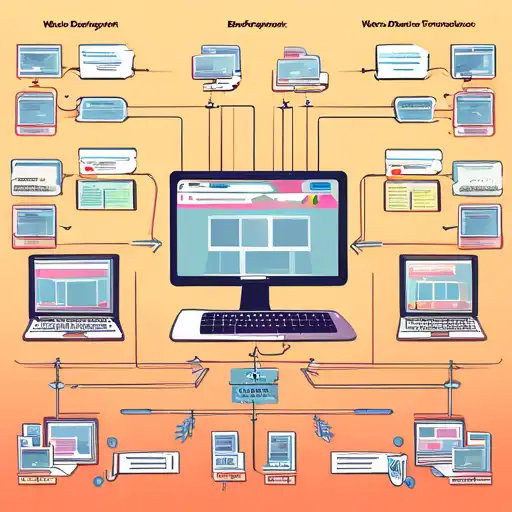Understanding Web Development Frameworks
In the ever-evolving world of web development, choosing the right framework can be a daunting task. With a plethora of options available, developers often find themselves at a crossroads, trying to decide which framework best suits their project needs. This guide aims to simplify that decision-making process by highlighting key considerations and comparing popular frameworks.
Why Use a Web Development Framework?
Web development frameworks provide a structured way to build web applications. They offer reusable components, streamline the development process, and enforce best practices. By using a framework, developers can save time, reduce errors, and focus on creating unique features for their applications.
Key Factors to Consider
When selecting a web development framework, consider the following factors:
- Project Requirements: The nature of your project will heavily influence your choice. For instance, a single-page application (SPA) might benefit from a frontend framework like React or Vue.js.
- Community and Support: A strong community means better support, more plugins, and regular updates. Frameworks like Angular and Django boast large, active communities.
- Learning Curve: Some frameworks are more beginner-friendly than others. If you're new to web development, you might prefer something with comprehensive documentation and tutorials.
- Performance: Consider the performance implications of your chosen framework. Some are optimized for speed and efficiency, which is crucial for high-traffic applications.
Popular Web Development Frameworks
Here's a brief overview of some of the most popular web development frameworks today:
- React: A JavaScript library for building user interfaces, React is known for its virtual DOM feature, which improves app performance.
- Angular: Developed by Google, Angular is a powerful framework for building dynamic web applications. It's a complete solution with a steep learning curve.
- Vue.js: Vue.js is a progressive framework that's easy to integrate into projects. It's gaining popularity for its simplicity and flexibility.
- Django: A high-level Python web framework that encourages rapid development and clean, pragmatic design.
Making the Right Choice
Ultimately, the right web development framework depends on your specific needs, skills, and project goals. Experiment with different frameworks, consult the community, and consider future scalability. Remember, the best framework is the one that helps you build efficient, maintainable, and scalable web applications with ease.
For more insights into web development, check out our articles on emerging web development trends and frontend vs backend development.
